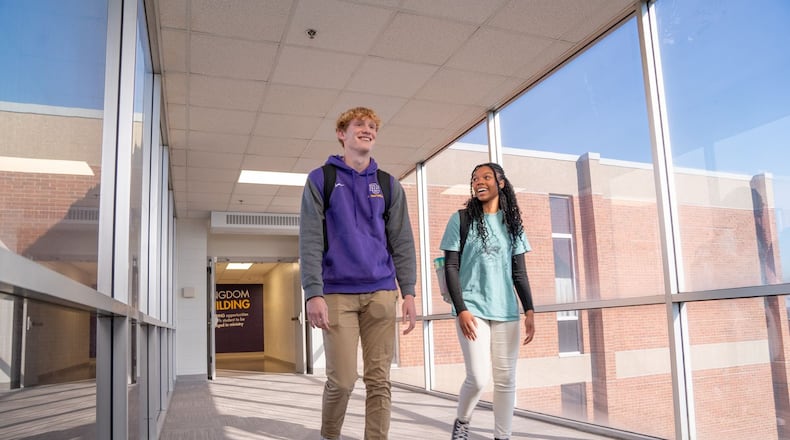This school year, the number of students rose again to 153,914, according to ODEW.
That smaller increase this year also means the amount of money Ohio is spending on vouchers – about $1 billion in the 2023-2024 school year – will likely remain roughly the same amount, experts said. More precisely, the state spent at least $970,685,880 on vouchers.
Some of the local private schools that have seen the greatest increases in EdChoice scholars included Dayton Christian, a private, non-denominational Christian, preschool through 12 school in Miamisburg, and Incarnation, a Catholic elementary school in Centerville.
Dayton Christian hasn’t had dedicated efforts to increase the student population beyond their typical marketing, according to school officials. But the school is reaching capacity in some grades.
“Our size allows us to offer the level of academics and depth of extracurricular activities students might receive in a public education, but with the Biblical integration so many families desire for their children,” said Julie Thompson, a spokeswoman for the school. “We know this is important for Christian families and continue to look for ways to strengthen what we offer.”
Thompson said a study done by the school showed enrollment could increase by 10% in 2025-2026, and could reach up to 1,500 students, but to do that, they will need additional space. She said the school plans to begin fundraising to reach that goal.
Voucher participation
When the Ohio state legislature first discussed expanding Ohio’s voucher system, some voucher opponents said it was possible there would be a mass exodus of students to private schools.
William Phillis, the executive director of the Ohio Coalition for Equity and Adequacy for School Funding, which is currently suing the state over school vouchers and believes the voucher concept is unconstitutional, said it was not clear what would happen after the state passed a universal voucher.
But he said there has been a clear increase in the number of people already attending private schools using vouchers.
“The private school community was pretty aggressive in pushing their tuition payers to sign up for vouchers,” Phillis said.
Beth Lawson, spokeswoman for School Choice Ohio, which advocates for vouchers in Ohio, said there are a lot of families happy with public schools in Ohio.
“You’ll see a bit of an uptick in application numbers, but it’s not going to be this groundswell that certain entities said would happen,” Lawson said.
Aaron Churchill, the Ohio research director at the Fordham Institute, said he anticipated a much smaller increase this year than last year as more students in private schools were already in the voucher program.
This year, he said, there were likely some stragglers who didn’t apply to the program last year as well as a few new students.
Ohio’s voucher system
Ohio’s voucher system has five main parts: two special education scholarships, one for autism and one called the Jon Petersen Special Education scholarship; and the three programs typically referred to as EdChoice.
The program began in Cleveland public schools, so there’s a scholarship specifically for Cleveland students, a scholarship called EdChoice for students who would otherwise attend schools deemed underperforming by the state, and EdChoice expansion, which is open to anyone based on income.
Any Ohioan who makes up to 450% of the poverty line — $150,000 for a family of four — is eligible for a full EdChoice Expansion Scholarship. Ohio families who make more than that are eligible for at least 10% of the scholarship.
The EdChoice scholarship amount is $6,166 for grades K-8 and $8,408 for grades 9-12 in the 2024-2025 school year, according to ODEW.
About the Author


